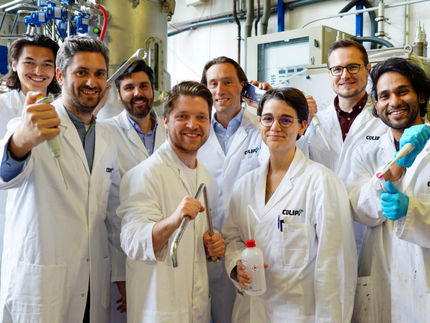New biofuel sources that don't require farmland
Advertisement
While the debate over using crops for fuel continues, scientists are now reporting a new, fast approach to develop biofuel in a way that doesn't require removing valuable farmland from the food production chain. Their work examining the fuel-producing potential of Streptomyces, a soil bacterium known for making antibiotics, appears in ACS' The Journal of Physical Chemistry Letters. The method also could help researchers identify other microbes that could be novel potential fuel sources.
Ariane Deniset-Besseau and colleagues point out that with the rise in oil prices in recent years, the search has been on for alternative fuels. Though plants such as soy and corn have been popular, the honeymoon ended as people realized how much arable land they were taking up. So now, researchers are seeking additional sources, including bacteria. Streptomyces has become a candidate in this search. It can make and store large amounts of oils called triacylglycerols (TAGs), which are direct precursors of biodiesel. Also, manufacturers already know how to grow vast amounts of it because pharmaceutical companies use the versatile bacterium to produce life-saving antibiotics. To better understand these microbes' potential as a fuel source, Deniset-Besseu's team wanted to explore how Streptomyces stores TAGs.
They used a novel laboratory instrument that combines an atomic force microscope with a tunable infrared laser source. This instrument allows researchers to determine how and where the bacteria store TAGs. Some strains hardly accumulate any oil, whereas others stored large amounts of oil in a way that might be easy to harvest. The researchers conclude that their technique could greatly speed up the identification of other microbes that could produce large amounts of bio-oil.
Most read news
Organizations
Other news from the department science

Get the chemical industry in your inbox
By submitting this form you agree that LUMITOS AG will send you the newsletter(s) selected above by email. Your data will not be passed on to third parties. Your data will be stored and processed in accordance with our data protection regulations. LUMITOS may contact you by email for the purpose of advertising or market and opinion surveys. You can revoke your consent at any time without giving reasons to LUMITOS AG, Ernst-Augustin-Str. 2, 12489 Berlin, Germany or by e-mail at revoke@lumitos.com with effect for the future. In addition, each email contains a link to unsubscribe from the corresponding newsletter.





























































